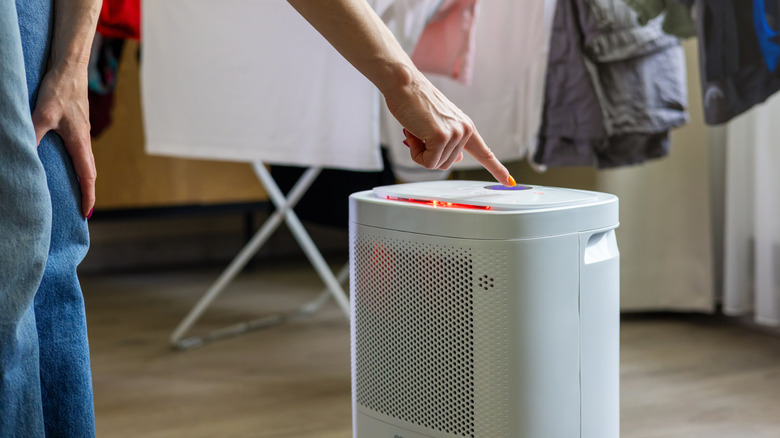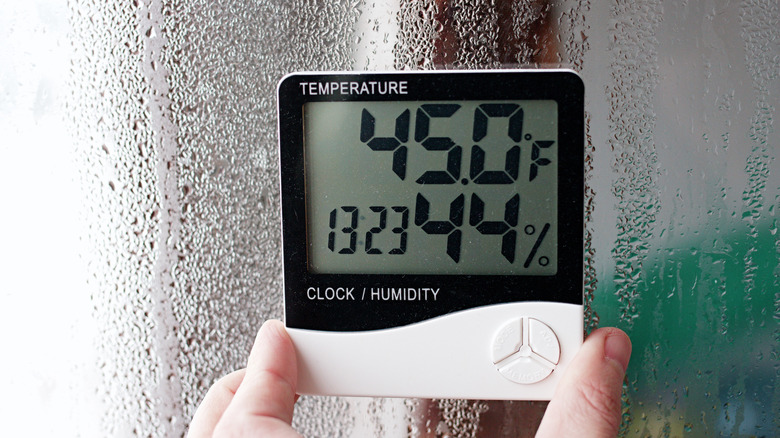Do You Really Need A Dehumidifier If You Already Have An AC Unit?
An air conditioner is increasingly regarded as a necessity in residential spaces, especially as the summer months have grown consistently hotter in recent years. At the same time, an AC unit can also aid with regulating the humidity levels in your home. The U.S. Environmental Protection Agency (EPA) recommends that your indoor humidity stays between 30% and 50%, and it's also helpful to know the signs that it's time to dehumidify your home. Not only will regulated humidity levels make your home more comfortable, but it will also help to decrease health risks such as dust mites and mold, too. To keep these factors in check, it's possible that your home could benefit from a dehumidifier, even if you already have an AC unit.
During the dry winter months, some people use room humidifiers to add moisture in the air. In the short-term, these devices are especially helpful if your skin is very dry, or if you're fighting sinus problems or throat irritation. A dehumidifier, on the other hand, removes excess moisture. These can be beneficial year-round for any time the humidity is too high. An AC unit can help control excess moisture, but only to a certain extent. Turning down your AC to a lower temperature may draw out some of the humidity, but it will also make your home much cooler. It isn't always necessary, or practical to turn your AC down to solely to control humidity from an energy standpoint. You'll also want to review the most cost-effective way to run your air conditioner in the hotter months to help save money.
How to tell if your home needs a dehumidifier in addition to an AC unit
Any home that is too humid could benefit from a dehumidifier, even if you have an AC. You can tell that your home is too humid based on how it looks, feels, and smells. Spots of mold and mildew in your bathroom, for example, could be an indication the humidity is too high in this area. Too much moisture throughout your home could also produce a musty-like smell. Air that feels warmer than normal despite setting a cooler temperature is yet another indication that humidity could be to blame.
The only way to really tell that your home is too humid is to get an accurate measurement. A hygrometer is a good way to test whether your home falls within the recommended 30% to 50% range. Readings that are consistently above 60% could mean you need a system-wide dehumidifier. If, however, there are only certain spots in your home that get more humid, you could get away with using a portable dehumidifier for that space only. One common example is the bathroom, which is notorious for moisture and high humidity, particularly after showering. Before investing in a dehumidifier, you can also see if opening windows for a short period of time can help allow the moist air to escape.
When humidity levels are maintained at an ideal level, you will likely feel more comfortable, and you might experience fewer allergy and respiratory issues caused by too much moisture in the home. As a bonus, regulated humidity levels may also reduce the amount of work your AC has to go through to keep the space comfortable.

